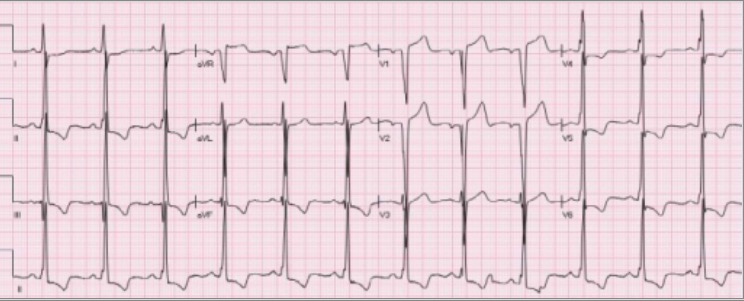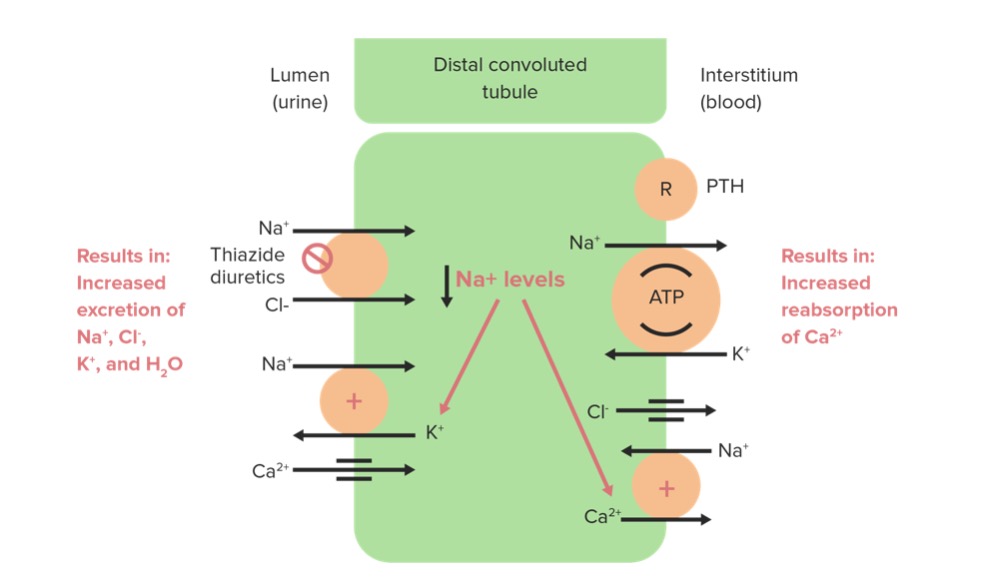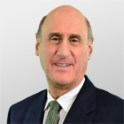Playlist
Show Playlist
Hide Playlist
Hypertension: Symptoms
-
Slides 06 VascularMedicine advanced.pdf
-
Reference List Vascular Medicine.pdf
-
Download Lecture Overview
00:01 The symptoms, I’ve mentioned before, we<br>call hypertension the silent killer because for years there are no symptoms and when symptoms<br>develop, they are due to damage to various organs. 00:13 We talked about hypertrophy – or – thickening<br>of the left ventricle and eventual heart failure with shortness of breath, peripheral swelling,<br>fatigue. We talked about stroke and dementia, or cognitive impairment in which patients<br>become forgetful, confused. Their personalities change, they’re not the person they were<br>before this process began. Again, kidney damage. 00:39 Nephrosclerosis means scarring of the glomerulus<br>so that the glomerulus doesn’t work so the kidney’s function is impaired and this can<br>lead to kidney failure and is a common cause of patients needing dialysis. There can be<br>damage to the retina, which is the photographic plate in the back of the eye, even with small<br>hemorrhages, and can lead to blindness. And finally you can have blood-vessel damage anywhere<br>in the body with atherosclerosis and all the complications that we’ve already been talking<br>about with atherosclerosis. 01:14 Therapy usually starts with medicines. When<br>we’re dealing with a hypertensive type where surgery isn’t absolutely required – for<br>example coarctation – we would move early on to surgery. But most patients with hypertension<br>are treated with medications. And we have very effective medications these days for<br>controlling hypertension compared to when Franklin Delano Roosevelt died of uncontrolled<br>hypertension because there were no drugs to control his hypertension. 01:41 The first-line drugs that are most-commonly<br>used are thiazide diuretics and ACE inhibitors and angiotensin blockers. We’re going to<br>go through all the classes in a moment. Calcium-channel blockers are also first-line, particularly<br>for patients with kidney disease. Beta blockers used to be first-line but have been moved<br>down now into second rank. And aldosterone antagonists – remember, aldosterone is released<br>from the adrenal gland secondary to stimulation from angiotensin. And there’s also drugs<br>that block the effect of aldosterone that help lower blood pressure. 02:20 Let’s look at the drugs in a little more<br>detail. 02:22 First, let’s look at the thiazide diuretics.<br>Excellent first-line therapy alone or often combined with angiotensin-converting enzyme<br>inhibitors, often called ACE inhibitors, or angiotensin-receptor blockers, often called<br>ARBs. These are generic. They’re inexpensive and they have been shown to reduce cardiovascular<br>events, such as stroke, in patients with hypertension. 02:49 The aldosterone antagonists are also very<br>effective. They bind at receptors in the kidney, heart, blood vessels and the brain. They block<br>the effect of aldosterone on the kidney and they increase sodium and chloride water excretion<br>and potassium excretion. 03:09 Beta blockers, as I’ve said, slow the heart<br>rate and they decrease cardiac output. They also decrease renin release to a small degree<br>from the kidney. And these are second-line agents for hypertension. 03:21 Calcium-channel blockers work by dilating<br>vascular smooth muscle and therefore they decrease peripheral vascular resistance and<br>that decreases blood pressure. 03:33 The angiotensin-receptor blockers and the<br>angiotensin-converting enzyme inhibitors also help block the release of the angiotensin<br>hormone system that causes vasoconstriction and increased peripheral vascular resistance. 03:52 Finally just a word to tell you something<br>about how many anti-hypertensive agents are needed for patients who have high blood pressure. 04:00 Here you see from a number of large, randomized,<br>double-blind controlled trials of hypertension control versus placebo. And you can see most<br>of the trials require at least two – and many of the trials require three drugs and<br>even some four drugs – to control blood pressure. So usually one drug is not enough.<br>And often, of course, the drugs have to be combined with lifestyle changes: weight loss,<br>control of diabetes and so forth. It’s not just the drugs that do the job. There also<br>has to be exercise and weight loss and watching the salt in the diet and so forth.
About the Lecture
The lecture Hypertension: Symptoms by Joseph Alpert, MD is from the course Arterial Diseases.
Included Quiz Questions
Which of the following ocular structures is most likely to sustain damage in hypertension?
- Retina.
- Cornea.
- Iris.
- Lens.
- Sclera.
Which of the following is a second line drug in treatment of hypertension?
- Beta-blockers.
- Angiotensin receptor blockers
- Calcium channel blockers.
- Thiazide diuretics.
- ACE-inhibitors.
Customer reviews
5,0 of 5 stars
| 5 Stars |
|
5 |
| 4 Stars |
|
0 |
| 3 Stars |
|
0 |
| 2 Stars |
|
0 |
| 1 Star |
|
0 |





